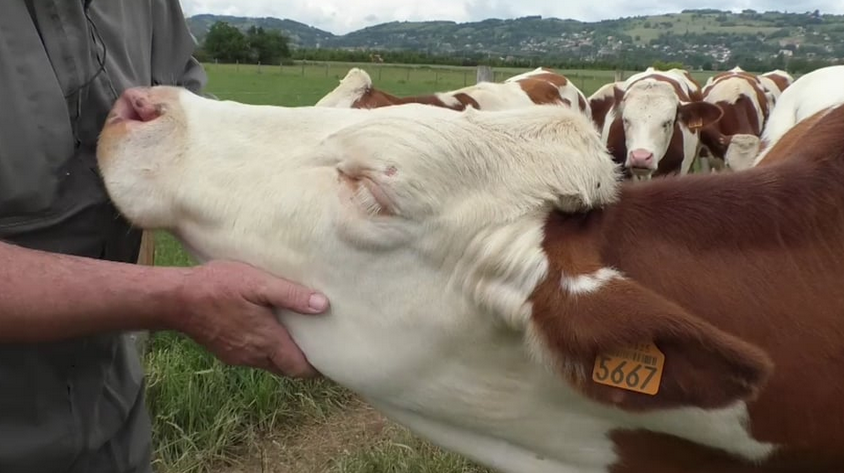Why and how to create and lead an open and by distance process to educate onanimal welfare education?
Issue
What are the main interests in combining distance and physical steps in a pedagogical process? In their professional context, educators are confronted with specific difficulties and unforeseen circumstances. It is a question of being able to accompany them at a distance, to enable them to find solutions.Objective
For the trainer: to develop a pedagogical process alternating face-to-face and distance situations allowing time for reflection and experimentation.For the trainee: to learn from their own practices as an educator and use their mistakes as a way to improve skills.
Principles
The combination of distance and physical phases can be adapted to your own context and intention.A first face-to-face meeting is necessary to ensure cohesion within the group. It is also an opportunity to analyse the educators' conceptions concerning animal welfare education, to bring innovative teaching practices to life (through the implementation of debates, problem-situations, the construction of a controversy map) and to develop a reflective approach in this area. It should also enable people to adopt a project methodology. How can they implement new pedagogical approaches in their respective contexts? What would be their first stage of change? What would be the risks to be addressed? How to apprehend them?
A learning process entirely without face-to-face meetings is very challenging, but possible. Such a process can be strongly led by the educator or more based on Self Responsible Learning.
Learning processes without knowing your co-learners or coach or your students requires very special skills and attitude - and is also very demanding, both for educators and learners.
At a distance, in their professional contexts, educators wishing to test these new approaches would be accompanied individually, or through peer exchanges to help them overcome obstacles (internal and external to them). New face-to-face meetings will allow an analysis of professional practices. This will be an opportunity to respond to problems that people may have encountered, to exchange practices, to implement, in a safe space, a pedagogical approach that seems risky to some educators (such as leading a debate, creating and solving a problem situation...).
It is therefore an iterative approach that is proposed here, alternating exchanges, experimentation of pedagogical approaches in context, feedback on experience during face-to-face sessions, new experimentation in context, ....
The group and the exchange between peers make it possible to avoid the feeling of loneliness that the educator may feel in his/her work context, to multiply points of view and to create a space where an authentic word is possible.

Pitfalls and interests
The steps performed remotely are asynchronous. They presuppose being able to mobilise the trainer and/or the trainees in response to the needs that are expressed. Such flexibility is not always easy to achieve. Moreover, training time is often a parenthesis for the trainees, who, back in their structures, are taken up by their respective priorities. It is necessary to anticipate difficulties with the trainees, and to find ways to overcome them.If some trainees feel that their audience is reluctant to talk about animal welfare, and find it difficult to teach, they may be asked only to collect existing conceptions and test their hypotheses. Are they all resistant? What are their fears? Are the conceptions homogeneous, diverse?
Insofar as the concept of animal welfare and the practices associated with it differ according to the culture, exchanges which are based on an intercultural exchange are likely to create a socio-cognitive conflict favorable to learning. This is one of the major benefits of online learning. Participants can be reached regardless of their location.
A second interest is to allow asynchronous learning. Each learner can adapt the exchanges to his/her pace and location. It also offers optimization potential for alternating training programs. The learner thus has periods of reflection, self-analysis, before elaborating an answer, which is seldom the case in presence-based configurations.
One of the major advantages of distance tools developed within the framework of Anicare is anonymity, enabling greater personal authenticity in the exchanges. This anonymity is all the more important given that pedagogy relating to the socially sensitive question of animal welfare, may raise controversies and therefore conflicts of values and representations.
However, the limits of distance training alone should not be overlooked. Online learning is a lonely activity and communication is generally more limited if in writing. Participants who drop out of the process we tested do so for several reasons: the technical connection is not easy, malfunctions, messages do not reach their recipient, are recognized as spam…; they do not understand what the learning process is aiming for; they feel too constrained by the framework offered to them; the interface is not friendly enough.
If we consider a constructivist approach, it is important to highlight the representations of the participants with regards to animal welfare. The possibility of expressing it anonymously is likely to promote greater authenticity. It may be appropriate to offer this first step remotely. The facilitator can then highlight the points of convergence and divergence without having to name anyone. These can serve as points of support for a possible debate / resolution of a problem-situation face-to-face or at a distance. Discussions can be initiated remotely without having allowed participants to have a more friendly and informal discussion at first, which allows them to break the ice, and to become aware of the individuals hiding behind the screens.












